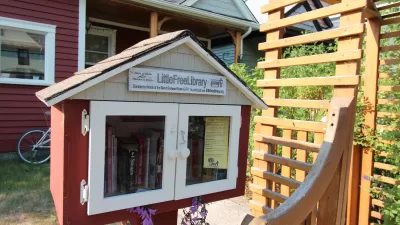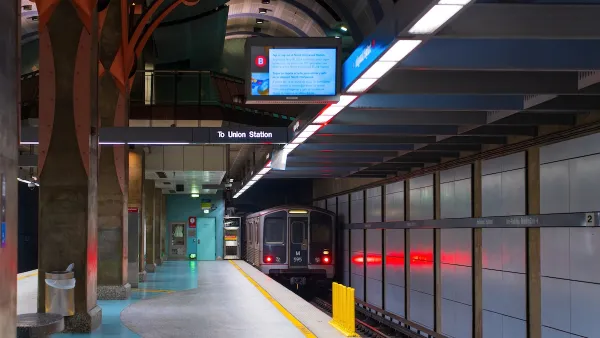With millions of people, Los Angeles -- like many big cities -- can be a rude place. And though it makes sense that the city can be impolite, it doesn't have to be, argues Amy Alkon in this op-ed.
"[P]eople are rude - in L.A. and many other places - because we live in societies too big for our brains. In a small society in which everyone knows each other, you can't act out the way you can around strangers. If, however, you're around people you'll never see again, you can get away with all sorts of nasty behavior.
We can't shrink Los Angeles to a more polite population size, but we can bring back some of the constraints and benefits of the small tribal societies our brains are adapted for. This actually doesn't take much."
She says that making a place feel neighborly is as easy as being neighborly.
FULL STORY: Rude awakening

Maui's Vacation Rental Debate Turns Ugly
Verbal attacks, misinformation campaigns and fistfights plague a high-stakes debate to convert thousands of vacation rentals into long-term housing.

Planetizen Federal Action Tracker
A weekly monitor of how Trump’s orders and actions are impacting planners and planning in America.

In Urban Planning, AI Prompting Could be the New Design Thinking
Creativity has long been key to great urban design. What if we see AI as our new creative partner?

King County Supportive Housing Program Offers Hope for Unhoused Residents
The county is taking a ‘Housing First’ approach that prioritizes getting people into housing, then offering wraparound supportive services.

Researchers Use AI to Get Clearer Picture of US Housing
Analysts are using artificial intelligence to supercharge their research by allowing them to comb through data faster. Though these AI tools can be error prone, they save time and housing researchers are optimistic about the future.

Making Shared Micromobility More Inclusive
Cities and shared mobility system operators can do more to include people with disabilities in planning and operations, per a new report.
Urban Design for Planners 1: Software Tools
This six-course series explores essential urban design concepts using open source software and equips planners with the tools they need to participate fully in the urban design process.
Planning for Universal Design
Learn the tools for implementing Universal Design in planning regulations.
planning NEXT
Appalachian Highlands Housing Partners
Mpact (founded as Rail~Volution)
City of Camden Redevelopment Agency
City of Astoria
City of Portland
City of Laramie





























